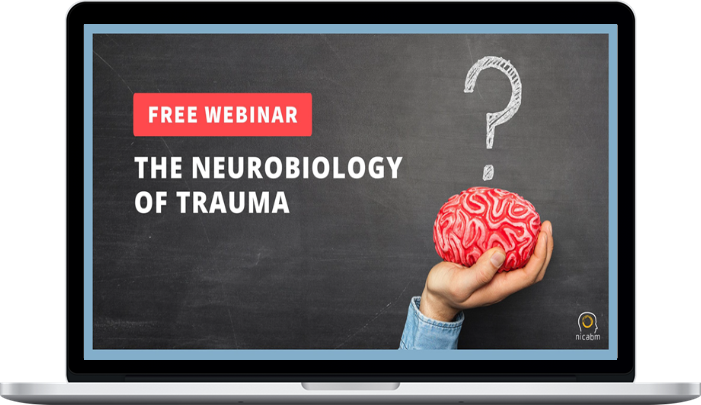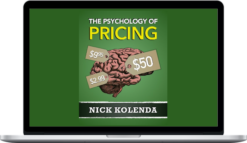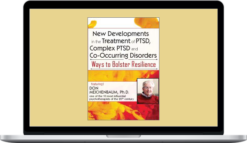NICABM – The Neurobiology of Trauma
$197.00 $37.00
Total Sold: 1
»Instant Delivery
Description
NICABM – The Neurobiology of Trauma
The Neurobiology of Trauma and How to Apply It To Your Work with Clients
During a traumatic event, the brain is primed to respond reflexively to ensure survival. But that same line of defense that keeps us safe can also keep clients trapped in cycles of traumatic memory.
To fully help clients heal from trauma, we have to understand what’s happening in the traumatized brain – while the traumatic event is occurring as well as how the client gets held hostage to threat cues long afterward.
The brain is so important to working with trauma that we wanted to create a program that solely focused on how to treat it.
We’ll look at the specific brain areas that get altered by trauma, and how this neutralizes the client’s ability to problem-solve.
5 of the top experts in the world will share how they treat clients who struggle with trauma. This brand new program brings together the sharpest strategies for working with a traumatized brain.
The Neurobiology of Trauma
How Trauma Overloads the Brain and Takes Away Its Ability to Cope
Bessel van der Kolk, MD Dan Siegel, MD

- The key part of a traumatized brain that gives trauma such enormous power
- The critical factor that allows the brain to successfully cope with a traumatic event
- The brain science underlying neurobiological shut-down
How Trauma Impacts Specific Areas of the Brain (And How This Can Affect Your Treatment)
Ruth Lanius, MD, PhD Bessel van der Kolk, MD Dan Siegel, MD

- How the “survival brain” gets altered after a traumatic experience (and how to look for this in your client)
- Two hormones that leave the brain highly vulnerable when traumatic memories are forming
- What happens in the brain that makes some clients unable to distinguish threat cues from non-threatening stimuli
- The critical part of the brain stem impacted during trauma
How to Prevent Dissociation and Its Negative Influence on Trauma Recovery
Stephen Porges, PhD Pat Ogden, PhD Dan Siegel, MD

- Why dissociation may be driving your client’s trauma deeper into their nervous system
- How to work with dissociation and shift a client’s reaction to trauma
- One strategy to prevent dissociation and retrain a client’s trauma response
Strategies to Foster Powerful Brain Integration After Trauma
Pat Ogden, PhD Dan Siegel, MD

- Two distinct signs that your client might have impaired brain integration from trauma
- How the midbrain holds the key to the freeze response
- What posture reveals about a history of trauma, and how to work with it in the healing process
Epigenetics and the Brain: How Trauma Affects Gene Expression
Dan Siegel, MD
- Why systemic inflammation could be directly linked to how trauma impacts the brain
More courses from the same author: NICABM
Delivery Policy
When will I receive my course?
You will receive a link to download your course immediately or within 1 to 21 days. It depends on the product you buy, so please read the short description of the product carefully before making a purchase.
How is my course delivered?
We share courses through Google Drive, so once your order is complete, you'll receive an invitation to view the course in your email.
To avoid any delay in delivery, please provide a Google mail and enter your email address correctly in the Checkout Page.
In case you submit a wrong email address, please contact us to resend the course to the correct email.
How do I check status of my order?
Please log in to HealingCourse account then go to Order Page. You will find all your orders includes number, date, status and total price.
If the status is Processing: Your course is being uploaded. Please be patient and wait for us to complete your order. If your order has multiple courses and one of them has not been updated with the download link, the status of the order is also Processing.
If the status is Completed: Your course is ready for immediate download. Click "VIEW" to view details and download the course.
Where can I find my course?
Once your order is complete, a link to download the course will automatically be sent to your email.
You can also get the download link by logging into your HealingCourse account then going to Downloads Page.
Related products
Total sold: 3










